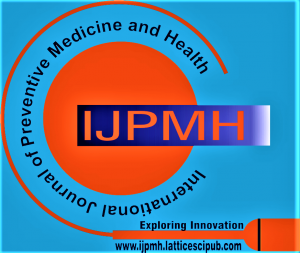![]()
Symptom Based Disease Prediction Using Machine Learning
Ridham Sood1, Virat Sharma2
1Ridham Sood, SRM Institute of Science and Technology, Chennai (Tamil Nadu), India.
2Virat Sharma, SRM Institute of Science and Technology, Chennai (Tamil Nadu), India.
Manuscript received on 25 July 2024 | Revised Manuscript received on 13 August 2024 | Manuscript Accepted on 15 September 2024 | Manuscript published on 30 September 2024 | PP: 7-10 | Volume-4 Issue-6, September 2024 | Retrieval Number: 100.1/ijpmh.G92340811922 | DOI: 10.54105/ijpmh.G9234.04060924
Open Access | Ethics and Policies | Cite | Zenodo | OJS | Indexing and Abstracting
© The Authors. Published by Lattice Science Publication (LSP). This is an open access article under the CC-BY-NC-ND license (http://creativecommons.org/licenses/by-nc-nd/4.0/)
Abstract: The Disease Prediction Method utilises predictive modelling to forecast a user’s disease based on the symptoms they provide asfeedback to the system. Medical servicesare in dire need of advancement to enable better decisions about patient care and treatment options. In terms of machine learning, Healthcare enables humans to process large and complex medical databases, interpret them, and derive clinical insights. The machine analyses the user’s symptoms as input and returns the likelihood of the disease as output. Implementing the Decision Tree, K-Nearest Neighbour, Naïve Bayes, and Random Forest enables disease prediction. In thispaper, we attempt to integrate machine learning capabilities in healthcare into a single framework. Instead of diagnosis, healthcare can be made smart by implementing disease prediction using machine learning predictive algorithms. Whenan early diagnosis of a disease is not possible, certain cases may arise. As a result, disease prediction can be applied effectively.This paper focuses primarily on creating a scheme, or what we would call an immediate medical provision, that integrates symptoms obtained from multisensory devices, as well as other medical data, and stores it in a healthcare dataset. This dataset will be analysed using a machine learning algorithm with an accuracy of more than 90%.
Keywords: Machine Learning Disease Prediction, Decision K Nearest Neighbor, Naïve Bayes, Random Forest.
Scope of the Article: Health Care Management
